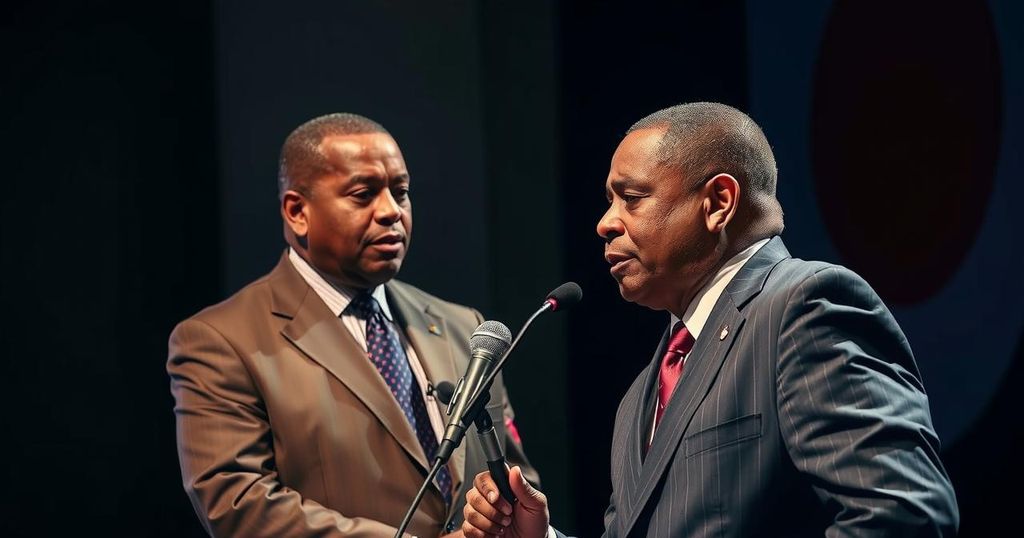Historic Shift in Botswana as BDP Loses Power After Almost Six Decades
Botswana has experienced a substantial political transition as voters have ousted the Botswana Democratic Party (BDP) after 58 years of rule. The UDC, led by Duma Boko, has emerged victorious, winning 20 seats in parliament. This shift marks the potential for a new administration as Boko is expected to become the next president, succeeding Mokgweetsi Masisi, who led the BDP’s unsuccessful campaign amidst economic challenges.
Botswana has witnessed a significant political upheaval as the long-dominant Botswana Democratic Party (BDP) has been decisively rejected by voters in the recent elections. This change marks a notable departure from nearly six decades of BDP governance, which began upon the nation’s independence in 1966. Early Friday morning, preliminary election results revealed that the BDP had secured only a single parliamentary seat. In contrast, the Umbrella for Democratic Change (UDC), led by human rights attorney Duma Boko, achieved a formidable victory, claiming 20 seats. Reports indicate that the UDC is poised to surpass the necessary 31-seat threshold to establish a parliamentary majority. Consequently, as the members of parliament prepare to elect the next president, Duma Boko is anticipated to assume leadership once parliament is convened for the first time. Boko, who has previously contested for the presidency twice before, has called upon his supporters to “maintain vigilance and discipline.” This electoral outcome follows several years of diminished economic growth and elevated unemployment, which have significantly undermined the BDP’s popularity, leading to a failure of their campaign spearheaded by President Mokgweetsi Masisi, who has held office since 2018. Despite promising change, the BDP could not convince enough voters of their capability to fulfill the country’s pressing needs.
The BDP’s loss of power marks a historic moment for Botswana, a nation rich in diamonds and known for its relative political stability in Africa. The BDP had been synonymous with Botswana’s governance since its independence, shaping the country’s political landscape for over 58 years. The recent elections reflect a shifting sentiment among the electorate, primarily driven by dissatisfaction with the BDP’s handling of economic downturns and rising unemployment rates. The UDC, a coalition of opposition parties, emerged as a formidable challenger, representing a quest for change and an inclusive approach to governance. Duma Boko’s leadership of the UDC signals a new direction for Botswana’s political future, emphasizing human rights and democratic values.
The electoral success of the UDC and the rejection of the BDP signify a momentous shift in Botswana’s political fabric. Duma Boko’s anticipated presidency is indicative of the electorate’s desire for effective governance that addresses economic challenges and social issues. The BDP’s longstanding rule has come to an end amid growing public discontent, paving the way for a new administration that promises to bring about necessary reforms and invigorate the country’s democratic processes.
Original Source: www.bbc.com




Post Comment